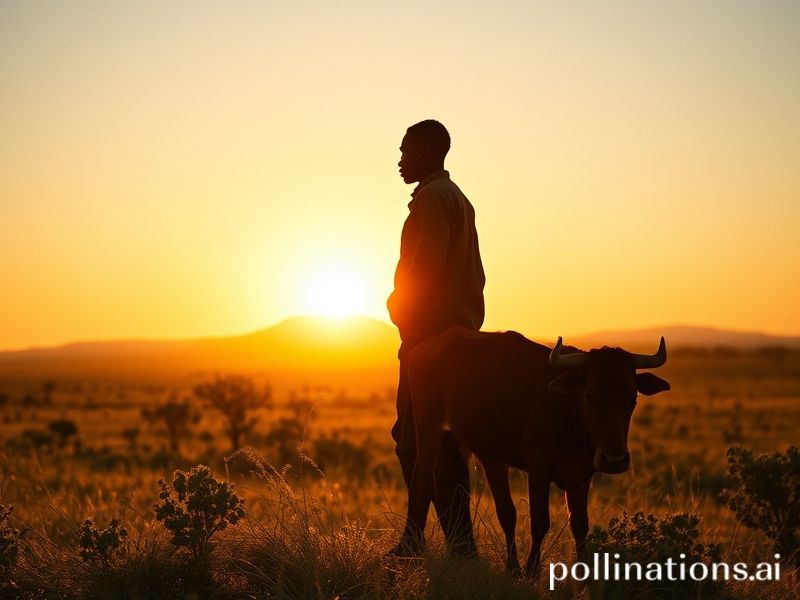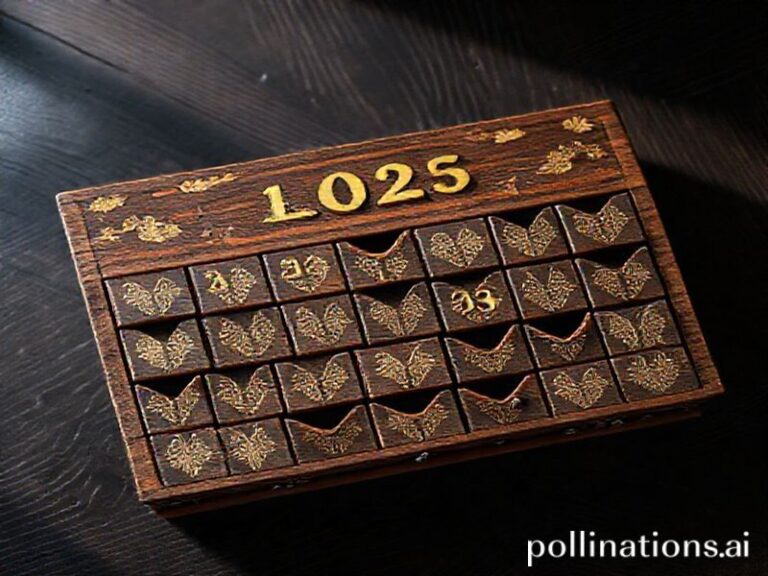Eswatini: The Last Absolute Monarchy That Out-Satired the 21st Century
Eswatini: The Last Absolute Monarchy That Forgot to Update Its Marketing Strategy
By Dave’s Locker International Desk
Mbabane—Tucked between South Africa and Mozambique like a polite afterthought, Eswatini (née Swaziland) is the world’s last absolute monarchy whose ruler still insists on calling himself “Ingwenyama” instead of the far sexier “Supreme Leader” or “Emperor of Vibes.” While other countries chase crypto scams and AI girlfriends, King Mswati III has spent 38 years perfecting the art of governing via leopard-skin sash, polygamy, and the occasional tear-gas appetizer for protesting students. It’s governance as performance art, and the world—distracted by billionaires launching themselves into suborbital midlife crises—keeps forgetting to clap.
Globally, Eswatini’s stubborn refusal to modernize is either a nostalgic throwback or a cautionary tale, depending on how many human-rights clauses your trade agreement contains. To Washington, it’s a harmless sideshow where the president can’t spell the country’s name on the first try. To Beijing, it’s a diplomatic speed bump on the Belt and Road, the lone Taiwan holdout in southern Africa, kept solvent by Taipei’s checkbook diplomacy and a royal fondness for Taiwanese pineapple cakes. Brussels, meanwhile, files Eswatini under “countries we lecture but never visit,” right between Equatorial Guinea and whatever is left of Venezuela.
The international significance, if we’re being brutally honest, is that Eswatini proves the nation-state can still function as a family business with a flag. While Silicon Valley sells us the metaverse, Mswati sells royal cattle auctions on WhatsApp. While Europe debates four-day workweeks, the king has 15 wives, each with her own line item in the national budget. It’s nepotism as fiscal policy, and every IMF report politely calls it “structural inefficiency” because “medieval cosplay” looks unprofessional in footnotes.
The broader implications are darker. Eswatini is the canary in the coal mine for what happens when globalization skips your zip code. Climate change is turning the Lowveld into a kiln, but the royal response is to import bottled water from South Africa—charging customs duty on thirst itself. Meanwhile, 60% of the population lives on less than $2.15 a day, which is not enough for a decent conspiracy theory, let alone three meals. UN agencies hold workshops on “resilience,” a word that here means “learning to love the taste of dust.”
Yet Eswatini exports something priceless: a masterclass in how to stay irrelevant while remaining technically sovereign. When COP delegates argue about carbon credits, the king commissions a new palace with solar panels the size of credit cards—optics over joules. When Twitter activists demand democracy, the government simply throttles the internet to 2G, turning every tweet into a haiku of frustration. It’s soft authoritarianism with a smiley-face emoji, the kind that makes diplomats shrug and mutter “cultural specificity.”
The world should pay attention, not out of charity but out of self-interest. Eswatini is where the 21st-century script breaks down: no insurgency slick enough for Netflix, no mineral bounty sexy enough for Tesla, no diaspora large enough to lobby Washington. It’s a control experiment in what happens when the international community agrees to politely ignore you. Spoiler: the royal family buys more Rolls-Royces per capita than any other country, and teenage girls still disappear into royal compounds like it’s 1423.
So next time you sip fair-trade coffee while doom-scrolling about AI ethics, remember that somewhere a king in a tiny African monarchy is naming his 16th wife after a Wi-Fi password. Eswatini isn’t just an anachronism; it’s the ghost at globalization’s banquet, reminding us that progress is optional when you own the cutlery. The moral? If you must be small, be absolute. Otherwise, prepare to be optimized, monetized, and ultimately forgotten—like last year’s trending hashtag.







